Piano scarf gets its due: Needlework made by Hatfield resident in 1700s is on display at Washington, D.C. museum
| Published: 03-10-2024 11:44 AM |
HATFIELD — A hand-woven linen known as a piano scarf, designed in the 18th century by a Hatfield woman with expertise in embroidery and then completed by three women over a period of 153 years, is on view this month at the Daughters of the American Revolution Museum in Washington, D.C.
Hatfield Historical Museum curator Meguey Baker, who has a background in textile conservation, recently used special materials and techniques to stabilize delicate portions of the piece in advance of its trip to the capital, where it will remain displayed throughout 2024.
The historic needlework, with threads of blue, yellow, gray, brown and white that create a winding floral vine across the center, was started in 1763 and completed in 1916, Baker said. Over that time, four women, all of whose names are recorded in the cloth’s faded cross stitch, made the piano scarf.
The first to undertake the work was Rebecca Dickinson, who drafted the design. Then, Mary Hastings Waite spun the linen in 1820, it was woven by Content Hastings in 1824 and finally embroidered by Mary Waite Allis Hurlburt in 1916. There are some marks of wear and tear, as well as mends, showing it was used and cared for in the years before it became a museum piece.
University of Massachusetts History Professor Marla Miller, who wrote a book on Rebecca Dickinson, examined the piano scarf two years ago, determining through genealogy research that the spinner, weaver and embroiderer completed their parts of the piece toward the end of their lives.
Baker said the length of time is interesting though may not be unusual, having previously worked on a Rebecca Dickinson piece at Memorial Hall in Deerfield.
“With the rise of local industrial mills, home spinning was on the way out in the 1820s, but there was a lot of nostalgia about it by 1916, and having unfinished textile work handed down in a family is just about the most typical thing I can think of,” Baker said.
The finished piece was inherited by Minnie Hurlburt Gaylord, who passed the piano scarf to her friend Marion Billings, of Hatfield. In 1981, the Billings estate donated the piano scarf to the Hatfield Historical Museum.
Article continues after...
Yesterday's Most Read Articles
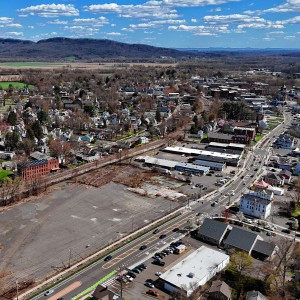 Northampton bans auto dealerships near downtown; zone change won’t affect Volvo operation on King Street
Northampton bans auto dealerships near downtown; zone change won’t affect Volvo operation on King Street
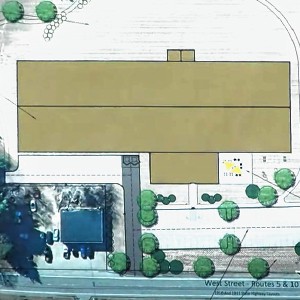 Proposed Hatfield pickleball/tennis building raising eyebrows
Proposed Hatfield pickleball/tennis building raising eyebrows
 South Hadley man killed in I-91 crash
South Hadley man killed in I-91 crash
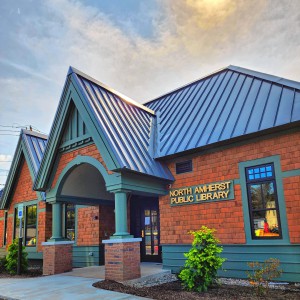 ‘Home away from home’: North Amherst Library officially dedicated, as anonymous donor of $1.7M revealed
‘Home away from home’: North Amherst Library officially dedicated, as anonymous donor of $1.7M revealed
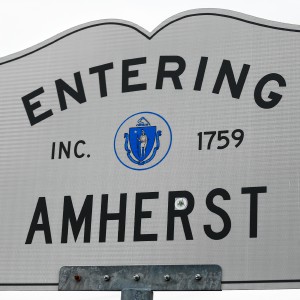 Police respond to alcohol-fueled incidents in Amherst
Police respond to alcohol-fueled incidents in Amherst
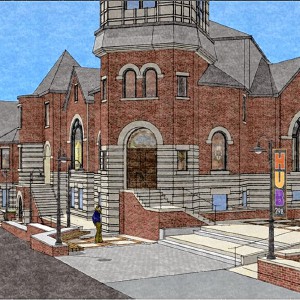 Public gets a look at progress on Northampton Resilience Hub
Public gets a look at progress on Northampton Resilience Hub
The piano scarf came to the attention of the Daughters of the American Revolution through its exhibit designer Alden O’Brien, who attended a talk given by Miller on the needlework, and wanted to have it shown as an item from the Revolutionary era to the eve of the First World War.
Miller and Baker will present a public program on their respective work with the piece to the Hatfield Historical Society on June 27.
Meanwhile, the town’s Historical Commission, Historical Society and Baker are continuing to advocate for having storage and exhibit space — possibly renovated space at Memorial Town Hall.
Micki Sanderson, who co-chairs the commission, told the Select Board last week that the main exhibit space, on the second floor of the library, isn’t handicapped accessible and that the off-site storage for the bulk of the collection is costing $1,350 a month, with a lease expiring at the end of September
So far, the town has spent $35,640 on storage since the collection was removed from Town Hall in advance of a renovation. “That’s a lot of money,” Sanderson said.
Returning to Town Hall would be the quickest solution. “There exists right now no other viable alternative,” Sanderson said
The commission and society are requesting 864 square feet for storage, access to artifacts and possibly pop-up exhibits. “Right now the most critical aspects we have a lease that’s expiring in September,” Sanderson said.
Baker said textile goods, household goods and paintings need climate-controlled storage, as do items from a collection of furnishings from Smith College founder Sophia Smith donated to the society by Smith College.
Select Board members, though, said the space the commission and society are eyeing could be ideal as a meeting room, a conference center and public access station studio that would relocate from Smith Academy.
“Previously this was used for storage, and it turned into a dust bowl up here,” Select Board member Ed Jaworski said. “After all the work that’s been done, just don’t want this to be turned into another dust bowl.”
Chairwoman Diana Szynal said it would be a shame to turn the room into storage. Szynal said officials have to balance the best use of the community.
“Protecting the collection is a top priority,” Szynal said. “I think it’s safe where it is now, I understand we’re spending some money on it, but you do have access to it.”
Jaworski said the May election could have an advisory vote on whether residents want the museum collection at Town Hall.
Another option could be renovating a balcony area in Town Hall to carry the weight of the collection, allowing the build-out of the studio to still happen.
Scott Merzbach can be reached at smerzbach@gazettenet.com.

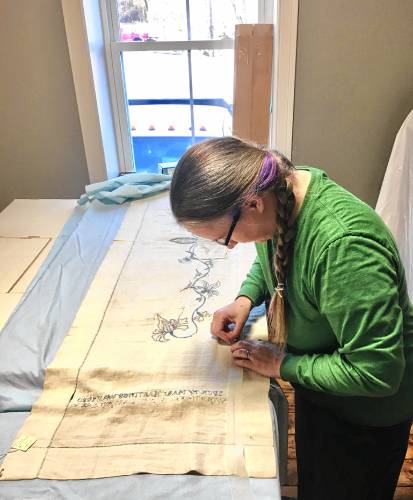
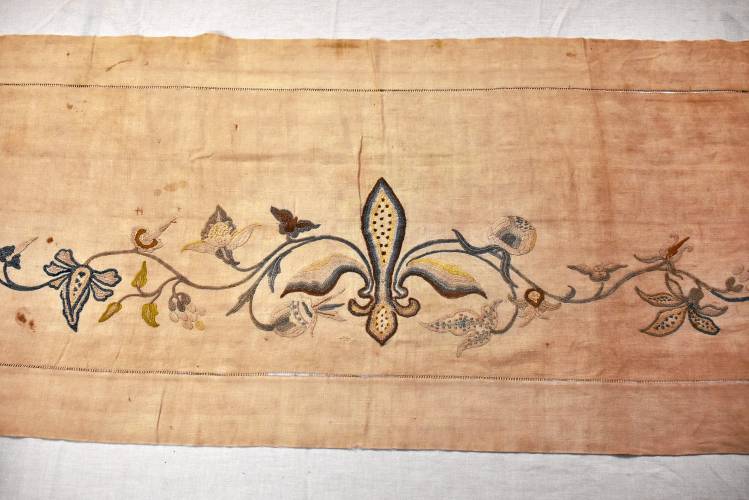
 State Senate budget funds free community college for all
State Senate budget funds free community college for all ‘We can just be who we are’: Thousands show support for LGBTQ community at Hampshire Pride
‘We can just be who we are’: Thousands show support for LGBTQ community at Hampshire Pride Doors open at Tilton Library’s temporary home at South Deerfield Congregational Church
Doors open at Tilton Library’s temporary home at South Deerfield Congregational Church Area property deed transfers, May 2
Area property deed transfers, May 2
